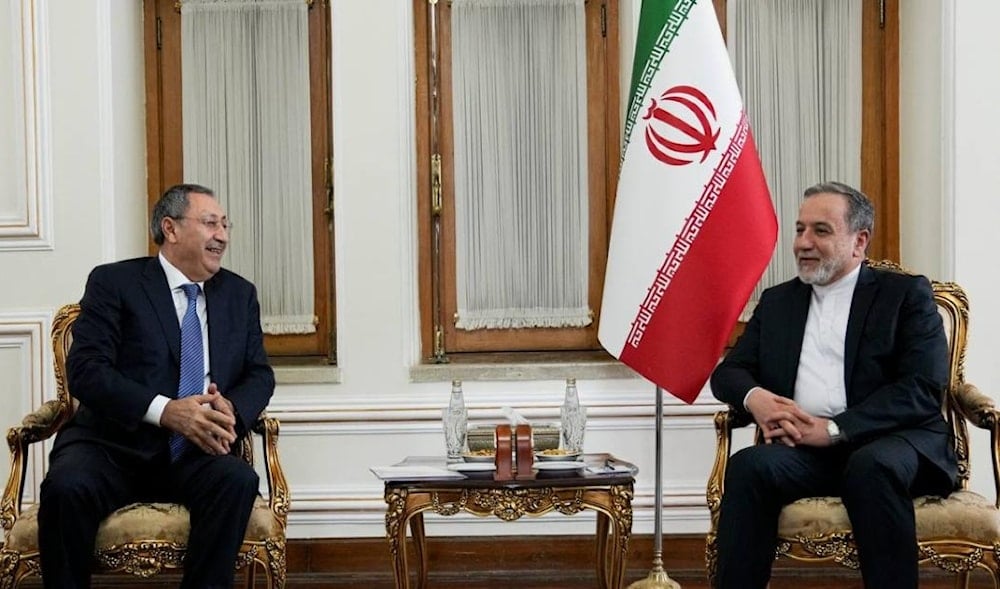Iran, Russia reaffirm ties, reject nuclear deal exploitation
Iran and Russia affirm unity on Syria’s sovereignty and reject efforts to use the nuclear deal to reimpose sanctions.
-

Iranian Foreign Minister, Abbas Araghchi, with the Russian presidential envoy to Syria, Alexander Lavrentiev, in Tehran, Iran, October 20, 2025 (WANA)
Iran's Foreign Minister, Abbas Araghchi, met with Alexander Lavrentiev, the special representative of the Russian President for Syria, with both sides reaffirming their commitment to Syria's unity and their rejection of any attempt to exploit the nuclear agreement to reimpose sanctions.
During the meeting, Araghchi expressed his appreciation for Russia's firm and principled positions at the Security Council, particularly its rejection of exploiting the nuclear deal's dispute resolution mechanism to reimpose the terminated resolutions concerning Iran's nuclear dossier.
For his part, Lavrentiev affirmed the importance of the strategic partnership between Iran and Russia, while also stressing the necessity of continuing consultations between the officials of both countries on regional and international issues.
During the meeting, both sides also emphasized the unity of the joint Iranian-Russian position regarding regional developments, affirming the importance of preserving Syria's unity and opposing any violation of its sovereignty and territorial integrity, while also stressing the necessity of preventing the country from becoming a breeding ground for the spread of terrorism.
As Western capitals escalate pressure, Tehran is strengthening partnerships with Russia, China, and members of the Non-Aligned Movement (NAM) to counter what it views as illegal coercion. Araghchi said that the three countries are coordinating "to neutralize the European Union's unilateral actions" and to preserve genuine multilateralism.
The NAM's Kampala communiqué echoed that stance, affirming that Resolution 2231 remains valid in principle and that the October 18 deadline for lifting all nuclear-related restrictions must be respected.
Domestically, Deputy Foreign Minister Hamid Ghanbari announced that Iran has adopted an "active economic response" to blunt the effects of Western sanctions, noting that "if the domestic economy is strong, Iran will have the upper hand at the negotiating table."
Tehran's new strategy focuses on reinforcing trade networks, diversifying partnerships, and shielding livelihoods from external pressure.

 2 Min Read
2 Min Read










